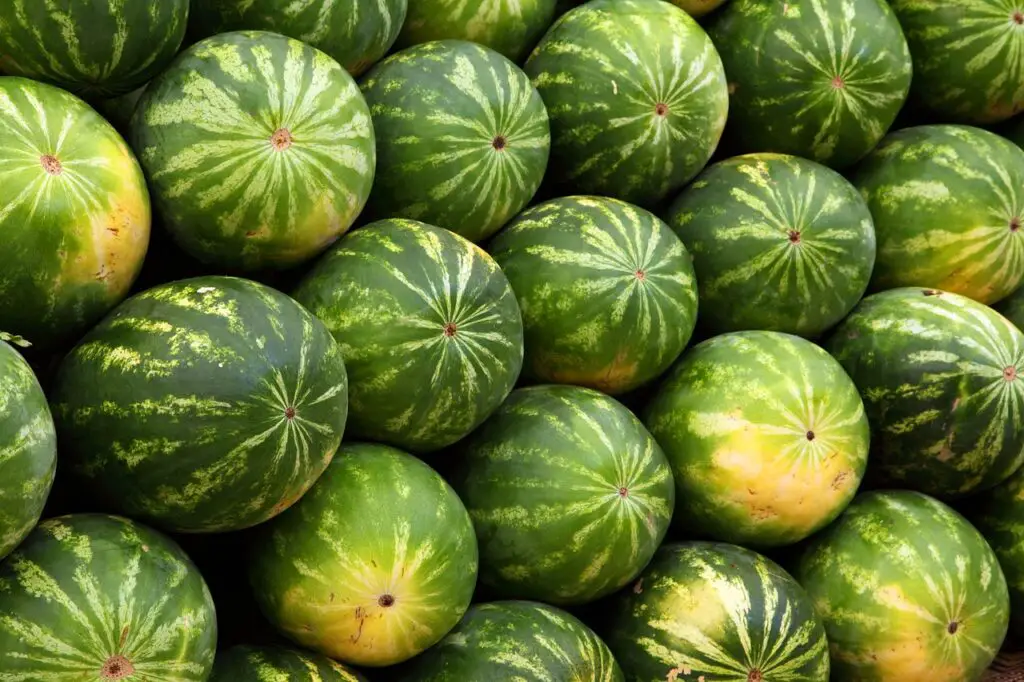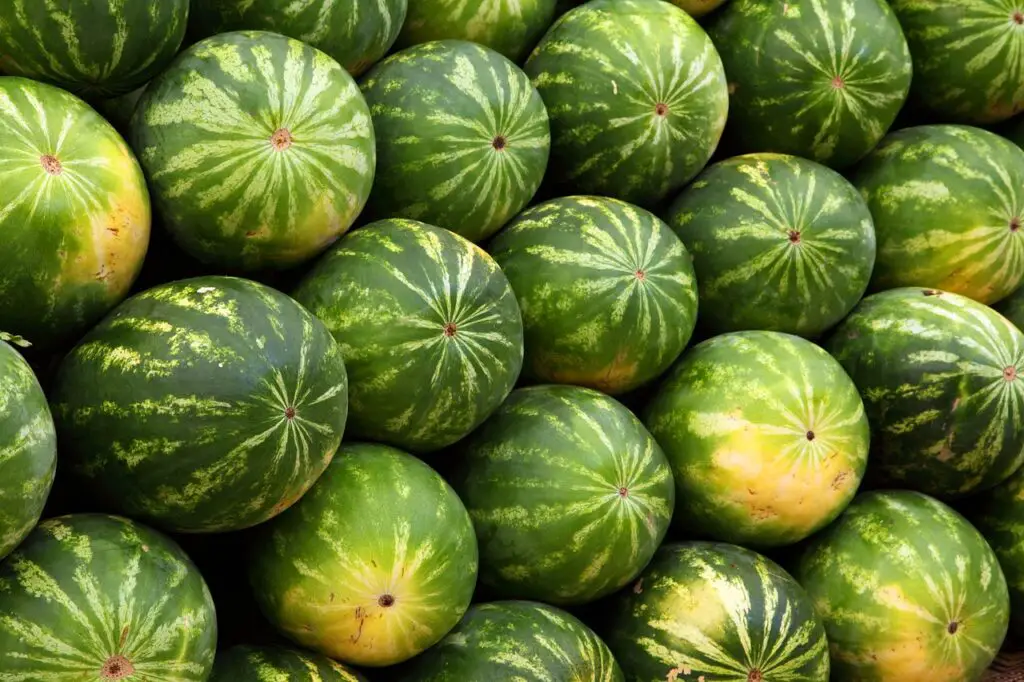
Watermelon is a popular fruit enjoyed by many around the world. It is a refreshing snack that is perfect for hot summer days. However, have you ever wondered how much the average watermelon weighs? The answer may surprise you.
On average, a watermelon weighs between 20 and 30 pounds. However, this can vary depending on the type of watermelon and its growing conditions. Some watermelons can weigh as little as 5 pounds, while others can weigh over 100 pounds.
The weight of a watermelon is determined by its size, shape, and density. Generally, watermelons with a round shape and a uniform size tend to weigh more than those with an irregular shape. Additionally, watermelons that are grown in areas with a lot of rainfall and fertile soil tend to be larger and heavier than those grown in drier regions.
Table of Contents
Understanding Watermelons

Varieties of Watermelon
Watermelons come in many varieties, including seeded, seedless, mini, yellow, orange, crimson sweet, jubilee, Carolina cross, icebox, little baby flower, starlight, dark belle, sorbet swirl, new orchid, farmer’s wonderful, grey bell, and sweet favorite. Each variety has its own unique characteristics, such as size, color, and flavor.
Watermelon and Nutrition
Watermelon is a low-calorie fruit that is high in hydration and nutrients. It is a good source of vitamins A and C, as well as potassium and antioxidants like lycopene. One cup of diced watermelon contains only 46 calories and 0.6 grams of protein, making it a great summer snack or addition to smoothies and sorbets.
Watermelon in Culture and Cuisine
Watermelon is a popular fruit in many cultures and cuisines. In the United States, it is often associated with summer and outdoor picnics. In China, watermelon is often served at weddings as a symbol of good luck and fertility. In Japan, watermelon is often given as a gift during the summer months.
Growing Conditions for Watermelons
Watermelons require specific growing conditions to thrive. They need well-drained soil, plenty of sunlight, warm temperatures, and consistent rainfall or irrigation. Pollination is also important for fruit development, as watermelons are not self-pollinating.
Genetics and Watermelon Weight
The weight of a watermelon is largely determined by its genetic makeup and variety. Some varieties, like Carolina cross and farmer’s wonderful, are known for producing large watermelons that can weigh up to 200 pounds. On average, however, a watermelon weighs between 20 and 30 pounds.
Choosing the Right Watermelon
When choosing a watermelon, look for one that is heavy for its size, has a uniform shape, and sounds hollow when tapped. The flesh should be firm and free of bruises or blemishes. Ripe watermelons will have a deep green color and a sweet aroma.
Price of Watermelons
The price of watermelons can vary depending on the time of year, location, and variety. On average, a watermelon costs between $5 and $10.
Conclusion
Watermelons are a delicious and nutritious fruit that come in a variety of shapes, sizes, and flavors. By understanding the growing conditions, genetics, and characteristics of different varieties, you can choose the right watermelon for your needs and enjoy this summer staple to the fullest.